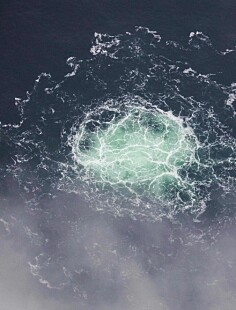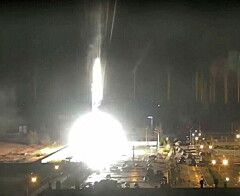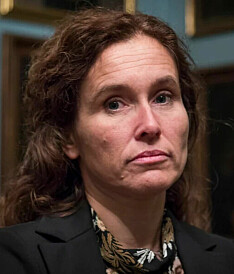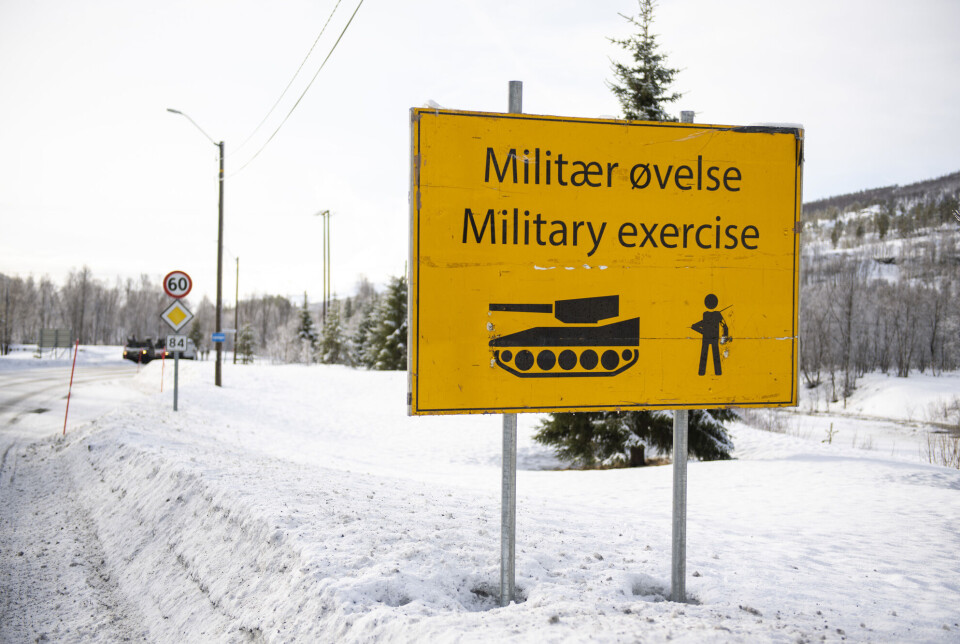
Is Russia a greater or lesser threat to Norway than before?
The Ukraine war has weakened Russia's military presence in the north, but increased the importance of the country's nuclear weapons.
The Russian invasion of Ukraine on 24 February this year led to major changes in Norwegian security policy.
“We now have to assume that we are facing a more dangerous and unpredictable Russia,” says Ine Eriksen Søreide.
Søreide was recently a guest at the Fridtjof Nansen Institute's northern areas seminar. She was previously Norway’s Minister of Defence and Minister of Foreign Affairs, and currently chairs the Norwegian Parliament's Defence Committee.
She told the seminar that there has been a sharp change in security policy compared to just ten years ago.
“In 2012, intelligence provided us an optimistic picture that Russia poses no threat. Now Russia is the dominant threat to Norway,” Søreide said.
Russian exercises outside Norway
The change is particularly noticeable in the north. As early as 2020, Russia's foreign minister, Sergey Lavrov, sent a sensational letter about Svalbard to Søreide, who was Minister of Foreign Affairs at the time.
The tone of the letter was rude and admonishing, Søreide told E24 (link in Norwegian). It listed a number of concerns related to Russia's presence on the Svalbard archipelago.
Eivind Vad Petersson, State Secretary at the Ministry of Foreign Affairs, who was also at the seminar, confirmed that Norway is now spending more time and effort on the country’s northern regions.
“It is well known that Russia has boosted its military forces and held exercises near Norway’s northern border. We have ensured that we have a Norwegian presence, with significant assistance from our allies,” he said.
Russia has had to move forces to Ukraine
Although the Arctic is very important to Russia, the Russian presence in the north has decrease after the outbreak of the Ukraine war, according to Kristian Åtland, a senior research fellow at the Norwegian Defence Research Establishment.
Russia's conventional military capability has been severely weakened as a result of losses in Ukraine, particularly in land battles.
Russia has had to move military units from Murmansk and Kola to Ukraine.
“These units have fought hard battles and suffered significant losses,” he said.
Many vessels from the Northern Fleet have also been moved to the Mediterranean and the Black Sea. This has resulted in reduced Russian capacity in the north.
“How long this will last depends on the duration of the war. But today, unfortunately, there is little indication that the war will be over any time soon,” Åtland said.
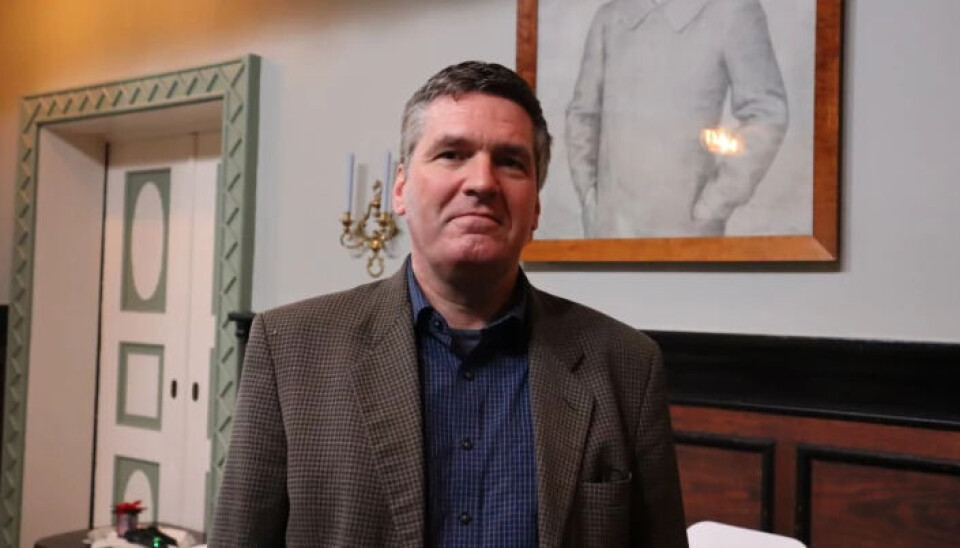
Increased importance of nuclear weapons
At the same time that Russia has had to move forces from the northern regions to Ukraine, the relative importance of Russia’s nuclear weapons has increased.
“Not only because of the war and the country’s weakened conventional military capability, but also because of the general deterioration of Russia's relations with the West, the USA and NATO,” Åtland said.
The war has made the country’s nuclear deterrent more important than before. This has significance for the Kola Peninsula's role in Russian security policy and defence planning, since Russia has nuclear warheads deployed there.
But is Russia a greater or lesser threat to Norway than before the Ukraine war?
Russia has its hands full with Ukraine
This is a complicated question, Åtland said.
Russia's conventional military power has been weakened, also in the north. However, defence experts also have to assume that Russia will go to great lengths to avoid ending up in a military confrontation with NATO, he said.
“Right now they have their hands full with Ukraine,” he said.
When Russia invaded Ukraine, it triggered a series of actions that are counter to Russia's interests. Sweden and Finland quickly applied for NATO membership. However, even with Sweden and Finland in NATO, the balance of power in the north will remain in Russia's favour.
Easier to get behind Sweden and Finland in NATO
Karsten Friis, senior researcher at the Norwegian Foreign Policy Institute (NUPI), still believes that the ability of the Nordic countries to come together on NATO membership is positive.
“It provides more collective defence power, and more deterrence. Now we can move from cooperation to integration,” Friis said.
Norway has cooperated militarily with Sweden and Finland before, but Norway could not commit to fully backing the two countries.
“We can do that now. We can make plans and unite forces. We can cooperate more on intelligence and surveillance, and get satellite images of what is happening in the Baltic Sea, and vice versa. We can secure supply lines if something happens to Finland,” Friis said.
Increased Russian and American interest in northern areas
But he warns that the alliance shouldn’t get too cocky.
“Overall, we still don't have such large military forces. The military in all the Nordic countries is thin, and Sweden has their forces concentrated in the south, around cities,” Friis said.
Norway’s most important military asset is perhaps its coastal fleet. And Norway has formidable air power, with F-35s, along with Sweden and Finland. Friis did comment that it was a bit dumb for Norway to have all its most advanced fighter jets at its one main air base in central Norway.
Both the US and Russia may also become more interested in Norway and surrounding areas, Friis believes. He points out that Russia could easily imagine the Baltic Sea becoming a kind of NATO sea. As a result, Russia might increase its presence on the Kola Peninsula.
At the same time, the USA has a vested interest in being focused on Norway and the northern regions, because the nuclear warheads on the Kola Peninsula are not aimed at Norway, but at the United States.
What about Svalbard?
In as much as Norwegian security policy has developed as it has, many people are looking at Svalbard, which is a Norwegian territory that is a free economic and demilitarized zone.
“Many people say we have no control over Svalbard. But we are prepared to exercise authority in Svalbard,” State Secretary Petersson said.
More and more national legislation has been introduced in Svalbard. The sanctions against Russia have also had an impact on Svalbard.
“But it is not our role to expel the Russians from their settlement on Svalbard, in Barentsburg. Without people, there is no security and vice versa. Settlement is in the national interest,” Petterson said.
When Russia demanded to be allowed to transport goods to Barentsburg, but was denied permission due to international sanctions, Norway found a pragmatic solution. They took the goods themselves and transported them to the town.
Quiet on the ground in Svalbard
Although the Russian tone is tough towards Norway, there are few local conflicts on Svalbard.
“On the ground, there are few conflicts, even if the situation is exacerbated on a national level,” said Anne Kristin Jørgensen, senior research fellow at the Fridtjof Nansen Institute.
“The Russian settlement in Barentsburg has become more inclined to follow Norwegian rules, they are in contact with the Governor of Svalbard, and have hired Norwegian consultants to follow Norwegian rules. You hear a lot of the Norwegian rhetoric,” she said.
Translated by Nancy Bazilchuk
Reference:
Nansen's northern area seminar (in Norwegian) Fridtjof Nansen Institute, 1, December 2022. YouTube.
———
Read the Norwegian version of this article at forskning.no








